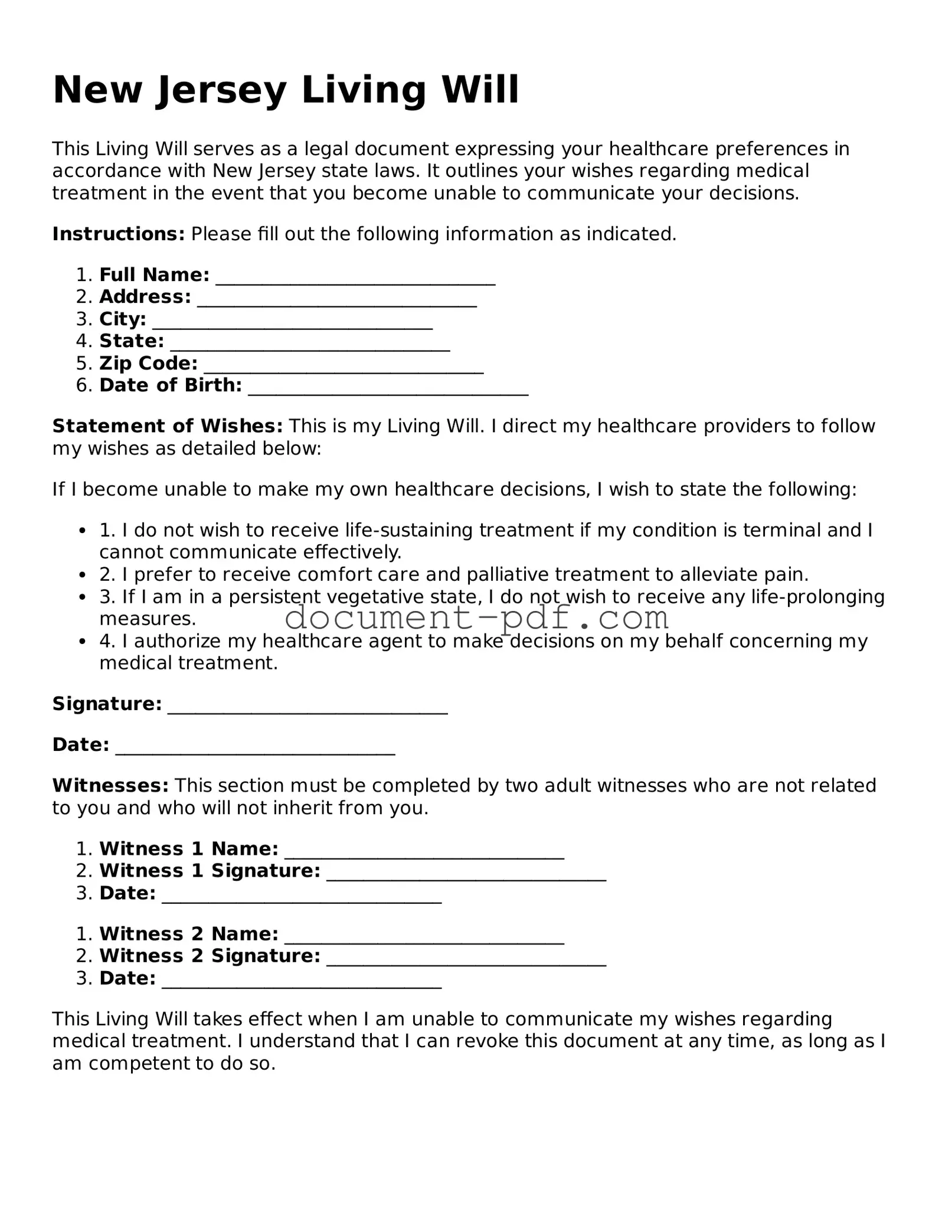Attorney-Verified New Jersey Living Will Template
A New Jersey Living Will form is a legal document that allows individuals to express their wishes regarding medical treatment in case they become unable to communicate those wishes themselves. This form provides clarity and guidance to healthcare providers and loved ones during difficult times. By completing a Living Will, you can ensure that your preferences for end-of-life care are respected.
Take control of your healthcare decisions today. Fill out the Living Will form by clicking the button below.
Access Living Will Editor Here

Attorney-Verified New Jersey Living Will Template
Access Living Will Editor Here
Finish the form without slowing down
Edit your Living Will online and download the finished file.
Access Living Will Editor Here
or
Click for PDF Form
